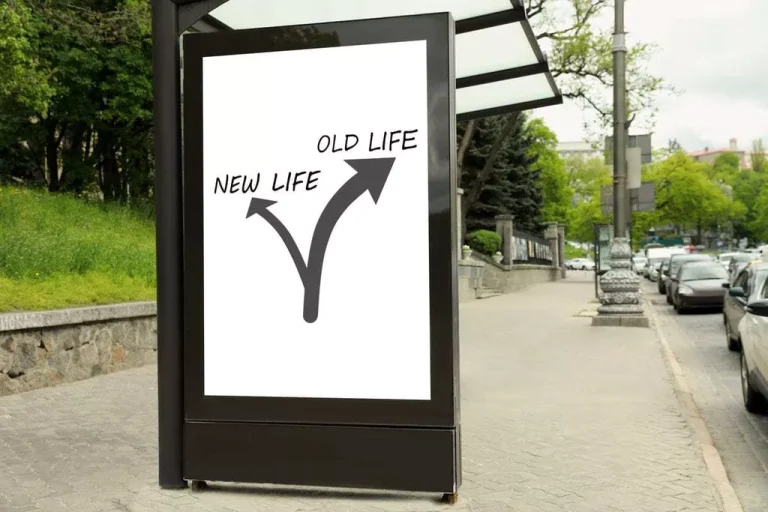Content
Consequently, these agents should be used only in combination with benzodiazepines. In general, the use of beta-blockers for treating withdrawal should be considered primarily for patients with coexisting coronary artery disease. Antipsychotic medications such as haloperidol can treat hallucinations and agitation that are unresponsive to adequate doses of benzodiazepines. Because antipsychotic medications can increase the risk of seizures, however, these agents should be used only in combination with benzodiazepines. Patients with mild withdrawal symptoms (i.e., CIWA–Ar scores of 8 or less) and no increased risk for seizures can be managed without specific pharmacotherapy (Mayo-Smith 1997; Saitz and O’Malley 1997).
If you go through alcohol withdrawal multiple times, a kindling effect can occur. With kindling, the brain becomes increasingly sensitized to stopping alcohol. In turn, you can suffer from increasingly severe withdrawal symptoms every time you try to stop drinking. When you taper your alcohol, you slowly reduce your alcohol intake over time. By gradually drinking less instead of stopping cold turkey, your body has a chance to adapt to smaller and less frequent drinks. Ria Health offers access to many of these tools, including prescription medications, recovery coaching, and online support groups—all through a HIPAA-compliant smartphone app.
Medications Used When Tapering Off Alcohol
Insomnia is a common symptom of alcohol withdrawal, especially in the early stages of recovery. In fact, sleep disturbances can persist for months despite continued abstinence. Some studies have shown that sleep disturbances can increase the chance of relapsing…. When you quit cold turkey without supervision, you’re more likely to relapse and binge drink, which increases the likelihood of overdose. Our Recovery Advocates are ready to answer your questions about addiction treatment and help you start your recovery.

For this reason, you should never start an alcohol taper before clearing with your doctor. Obviously quitting cold turkey from a 12-beer-a-day habit is going to be more stressful than tapering off slowly. In medical detox, doctors and nurses provide around-the-clock care while helping you wean off alcohol. Medical detox is then followed by inpatient and outpatient rehab to help you maintain your sobriety over the long term, and medication-assisted treatment may be prescribed as medically appropriate. When you drink heavily, your brain changes the amount of GABA it makes.
Pharmacotherapy of Alcohol Withdrawal Symptoms
She is also the Board President, BarZero and Board Member of the Colorado Professional Liaison Association. If your blood pressure, pulse, or body temperature rises, or if you have more serious symptoms like seizures and hallucinations, seek medical care immediately (dial 911). If you drink only once in a while, it’s unlikely that you’ll have withdrawal symptoms when you stop.
- Tapering off helps reduce uncomfortable withdrawal symptoms and prevent life-threatening complications.
- Your doctor may prescribe opioids to help you get through a few days of severe pain after surgery or a traumatic injury.
- This is why you can experience seizures and heart failure during alcohol withdrawal.
- With 24-hour care, this is the most intensive form of treatment and typically entails 30, 60 or 90-day programs.
- If you choose moderate alcohol use, the best way to avoid alcohol withdrawal is to refrain from alcohol use two days in a row.
Quitting cold turkey involves suddenly stopping all alcohol use, while tapering involves slowly decreasing the amount of alcohol a person drinks each day. Tapers are commonly used in an attempt to reduce the chance of experiencing withdrawal or the severity of withdrawal symptoms. The main downside https://ecosoberhouse.com/article/xanax-addiction-signs-symptoms-and-treatment/ of cold turkey is how unpleasant and risky it can be. If you drink heavily, alcohol withdrawal symptoms can be harsh, dangerous, and even fatal. For this reason, it’s generally best to avoid quitting abruptly, or at bare minimum speak with a doctor first and have someone looking out for you.
Sample Alcohol Tapering Schedule
In fact, according to the NIAAA, someone with AUD is 3.6 times more likely to also suffer from a mood disorder. Maybe they don’t have peer support or maybe their alcohol addiction is too severe. Being surrounded by triggers can make it extremely difficult to stay how to taper off alcohol on track and avoid overdoing it on alcohol. Also, a severe type of alcohol withdrawal known as delirium tremens (DT) can occur between 4 to 72 hours of stopping alcohol use; without the proper supervision, DT can lead to permanent braind damage or death.
What happens when you stop drinking completely?
If you stop drinking completely, one of the first things you notice should be improved energy levels, better sleep and finding it easier to wake up in the morning. Regular drinking can affect the quality of your sleep making you feel tired and sluggish during the day.
The Recovery Village Palm Beach Florida at Baptist Health can help you get started on your recovery with alcohol addiction treatment — safely, comfortably and with your future in mind. Reach out to one of our supportive professionals and begin the healing process. One of the most clear signs of alcohol dependency is experiencing alcohol withdrawal. Alcohol withdrawal is the changes the body goes through after a person suddenly stops drinking after prolonged and heavy alcohol use. Over time, both the body and the brain becomes dependent on drinking frequency and patterns.
Tapering Off to Sobriety: How Much Cutback is Too Much Too Soon?
Lastly, engaging in alcohol therapy can also make a major difference in your healing journey. A therapist will work with you to create a personalized plan for cutting back and provide ongoing guidance and accountability. Despite the variability in the type and severity of symptoms that a person can experience, the clinical syndrome of AW has been well defined. Its symptoms generally appear within hours of stopping or even just lowering alcohol intake and, thus, BAC. Even without treatment, most of these manifestations will usually resolve several hours to several days after their appearance.
